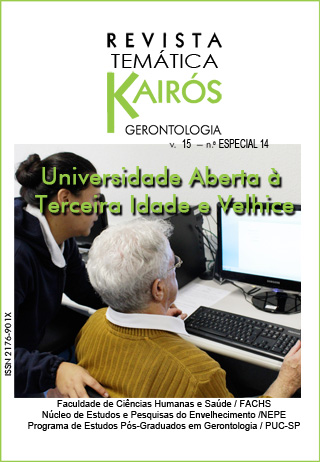Emotional Expression Questionnaire applied to elderly: psychometrics indicators and relationships with sociodemographic and affectives variables
DOI:
https://doi.org/10.23925/2176-901X.2012v15iEspecial14p89-106Keywords:
Aging, Emotional Expression, Psychometric IndicatorsAbstract
The study examined the psychometric indicators of validity and reliability ofEmotional Expression Questionnaire (EEQ; Gross & John, 1995) applied to Brazilian elderly. In addition, was examined the relationship between the EEQ and sociodemographic indicators of emotional experience and depressive symptoms. The sample was consisted of 256 elderly of an Open University of the Third Age with mean age 67 years (+ 5.54). The EEQ was subjected to retesting with sub-sample of 150 elderly and indicated moderate correlation coeficiente (>.60). The exploratory factor analysis replicated the original domains that the instrument is also derived from the alpha of Cronbach coeficiente (.73). The highest mean scores of the elderly were in positive expressiveness and strength of the impulse. Gender, income, education and marital status, depression and affective experience generated individual differences in emotional expressiveness. The instrument reveals good psychometric indicators and revealed the maintenance of the emotional domains in old age.Downloads
How to Cite
Oliveira, M. A. de, Batistoni, S. S. T., Melo, R. C. de, Yassuda, M. S., Domingues, M. A., Lopes, A., & Cachioni, M. (2013). Emotional Expression Questionnaire applied to elderly: psychometrics indicators and relationships with sociodemographic and affectives variables. Revista Kairós-Gerontologia, 15(Especial14), 89–106. https://doi.org/10.23925/2176-901X.2012v15iEspecial14p89-106
Issue
Section
Papers


